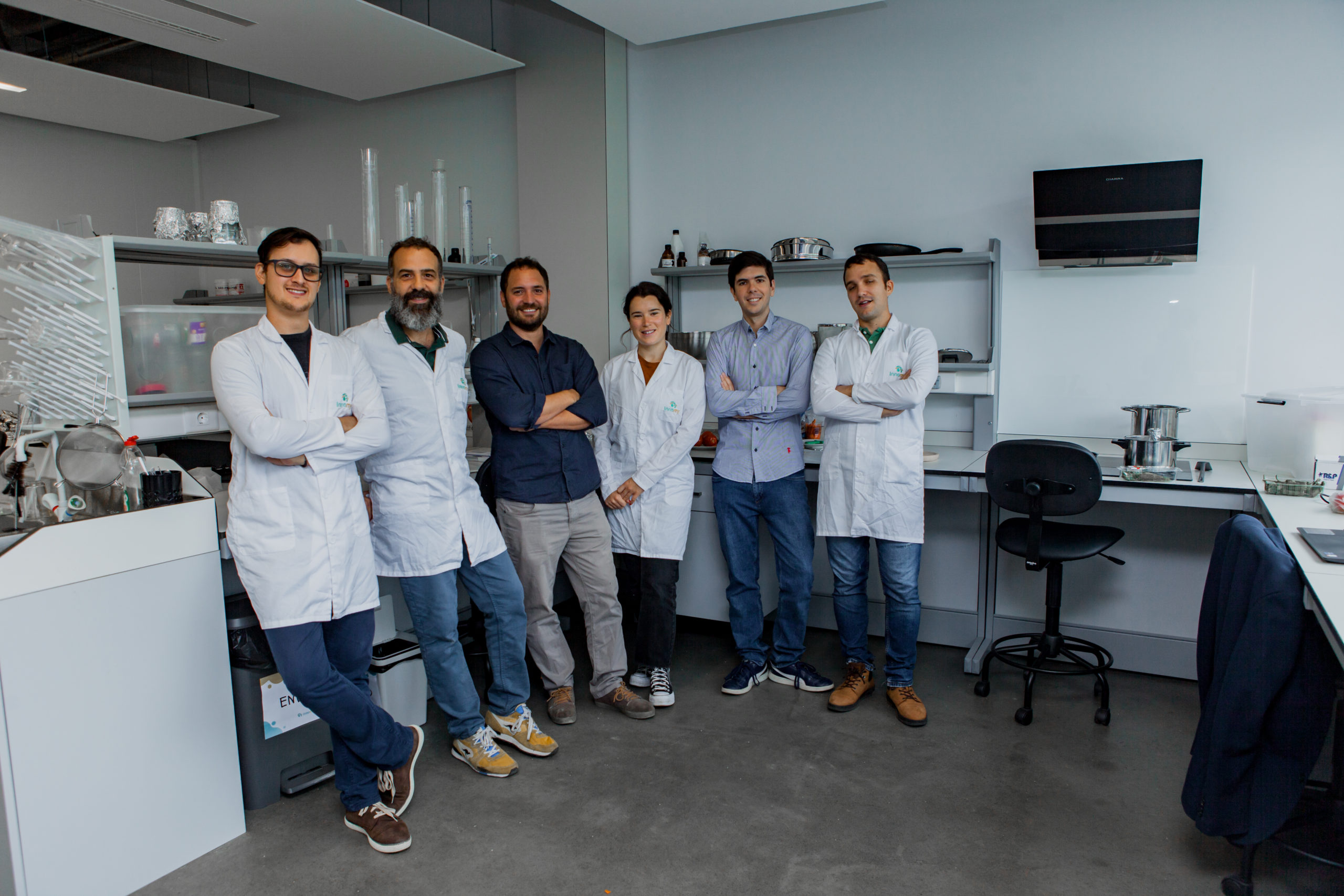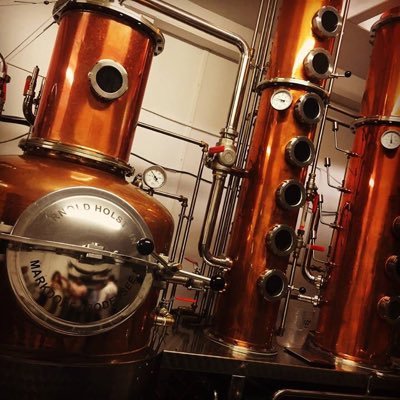Experiences:
Ama brewery
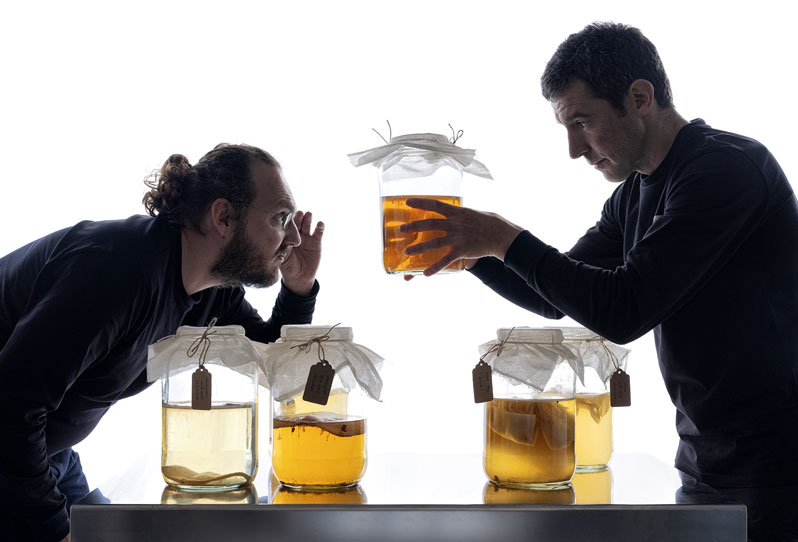
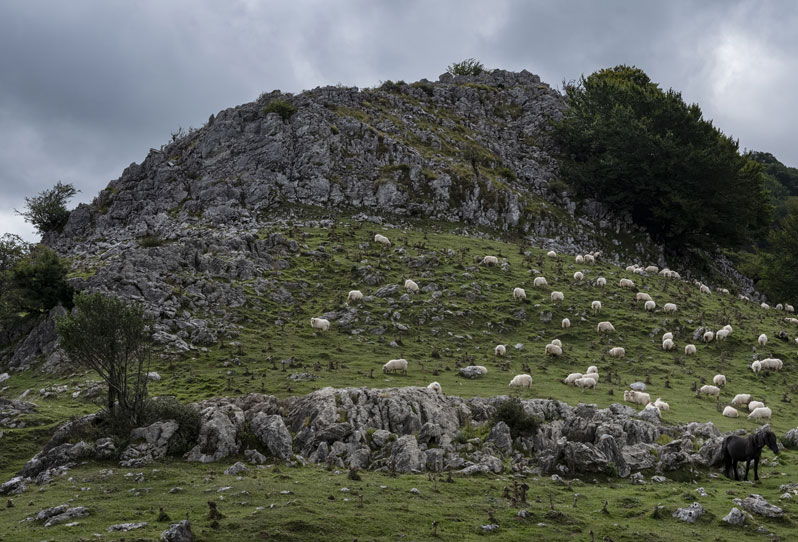
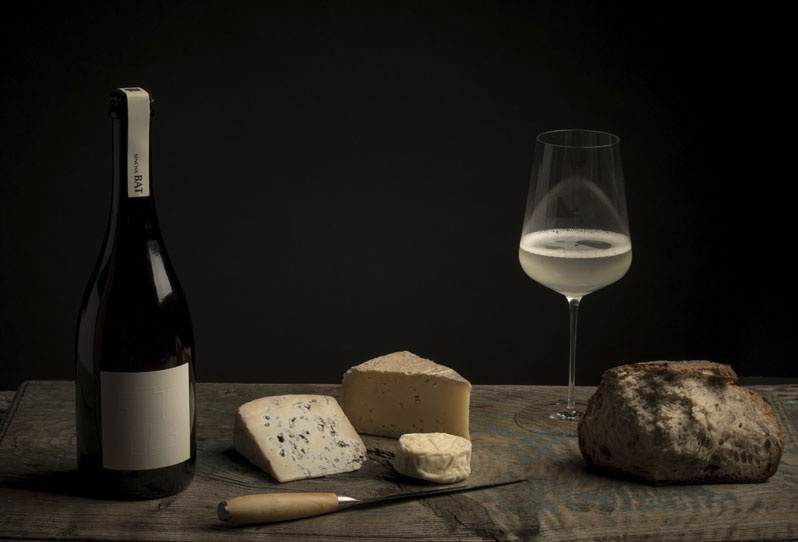
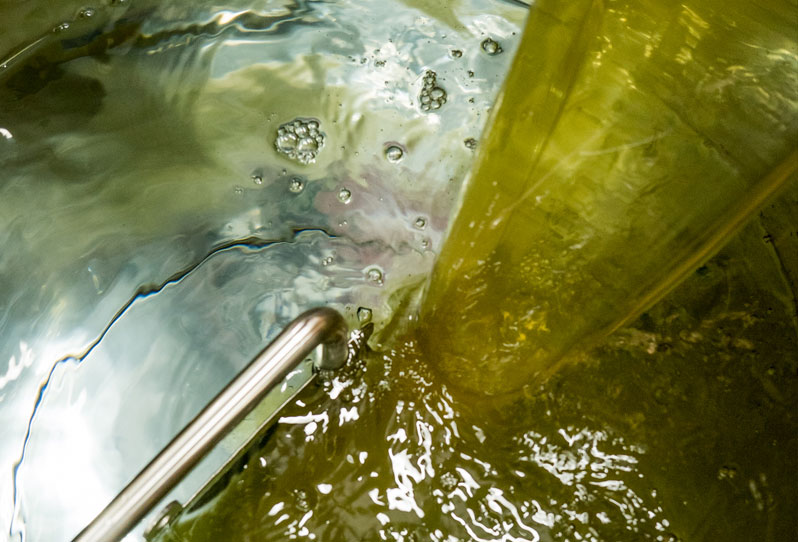
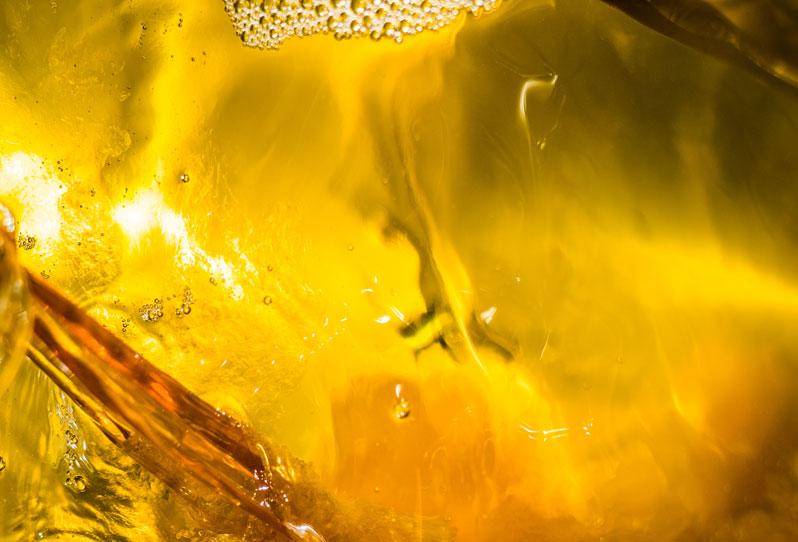
Ama brewery
November, 2021The liquid reconversion with star of an ancestral process

The creation of a new product, kombucha, translating ancient production processes into the obtaining of a high sensory quality product made according to strict quality regulations, has represented a very important technical challenge, which remains in place today
Please tell us what your business offers
Wild Ferment produces under the name of ama brewery a slightly sparkling drink, of low alcohol content and extensive sensory expression, made from the fermentation of herbal and tea infusions.
What’s your added value?
Ama Brewery breaks the mould in the world of low alcohol fermented beverages.
With its pét-nat tea it increases the possibilities of subjecting tea infusions to transformation and ageing processes with a view to providing stimulating dining experiences with drinks adapted to a new consumer who seeks pleasant experiences without harming their health, outstanding for their flavour and personality. Taking their inspiration from ancestral or pétillant naturel wines, their varietals achieve characteristics comparable to champagne and other sparkling wines (hence the name pét-nat tea).
Ama Brewery breaks the mould in the world of low alcohol fermented beverages.
Who makes up your company?
Ama’s structure encompasses enormously important positions for its operation. While Gema Serrano occupies a position hugely fundamental for the market entry of such an innovative beverage as head of the Quality Department, Olatz de Solaeche is hired to direct the marketing work. Wild Ferment also contracts the services of expertise in the commercial area by means of a relationship based on the provider formula with Foodiz, food strategy. In its company, Ama is basically made up of a group of people familiar with the world of gastronomy, wine and entrepreneurship. On the one hand are chefs like Ramon Perisé and Dani Lasa, with extensive experience in creative haute cuisine departments, and on the other people from the world of wine, such as Sancho Rodriguez (Bodegas Nuestra Señora de Remelluri), Mariano and Pablo Fernández Soto (creators of Dolmar Products and Dolmar Living Innovation, oenology laboratories and warehouses), Ángela Zozaya, cultural promotor, and Francisco López Gejo (Physicist, with extensive experience in the business world). This team encompasses a great deal of the expertise required to generate a new product category and achieve its market entry.
What have been your main challenges during these months and how have you dealt with them?
The creation of a new product, kombucha, translating ancient production processes into the obtaining of a high sensory quality product made according to strict quality regulations, has represented a very important technical challenge, which remains in place today. Ama means the emergence of a new product category – a premium product with low alcohol content – on the market. This means that we have had to create an inclusive discourse in order to promote the product and train the associated partners and distributors. Ama started making its market entry in full swing of the COVID-19 pandemic, a factor which has added a great deal of difficulty to a project entailing risk in itself. This circumstance has aggravated the already existing need for Ama to embrace the international market. In this respect, a great deal of effort has been made to reach European, Asian and American markets.
What new projects are you working on?
As is clearly indicated by its name, Wild Ferment S.L., the company intends to continue researching the by-products of fermentation processes. A project is currently underway to study use of the biofilm resulting from the production of Pet Nat Tea as a textile material or biopolymer. On the other hand, the health attributes contained by this drink makes it suitable as a sports supplement. We are working in collaboration with sports nutritionists to study the viability of generating drinks to assist the hydration and metabolic regeneration of high performance athletes.
How do you see the company in 10 years?
Wild Ferment pursues the objective of being a profitable company and has the vocation to generate an environment around the knowledge it is capable of developing. Wild Ferment aims to generate different business lines drawing on the knowledge developed in the improvement of its original process and its derivatives. Wild Ferment’s vocation through its commercialised products is inherently international, given that it generates products with a strong innovative nature through advanced processes. The profile of Wild Ferment customers is therefore international, aware of the values assumed by the international community with respect to aspects such as sustainability, social justice and responsible innovation.
How has the Basque public sector helped you?
The birth of a company in the Basque entrepreneurial sphere is strengthened by the institutional backing received in all of its areas and stages of operation. From backing in support of the first idea in order to study its market potential, to access to the technology required to develop the project, studies to establish viability of the process, brand development and promotion for its market entry (internationalisation) or digitalisation, the Basque public sector has played a very important role. Wild Ferment has had the opportunity to receive the mentorship of people who have completed their creation process, has received financial support and has been benefited from accompaniment in monitoring the consolidation process.
What would be your recommendation to somebody who’s starting out?
A good idea must be accompanied by a good business strategy, meaning that making a good market diagnosis and surrounding oneself with people or organisations with the necessary skills is essential. Even if, as in the case of Wild Ferment, they are starting out with a product offering something new, it is essential to develop the ability to change and manoeuvre in order to be able to adapt to the conditions which the market itself, regulations and the particular nature of the project may impose. Setting a new project in motion is a professional gymkhana which requires the entrepreneur to make the most of their skills in order to guarantee that a product will be accompanied during its entry to and consolidation in the market by as many initial attributes of the idea as possible.
Why did you decide to focus on the 3-star market niche?
We consider that our knowledge of the sector and our driving nature within it could be of great help in order to introduce a new idea (a new product with updated values) with a high component of exclusivity to the market of hedonistic consumption. We consider that the influential nature of this market may help to channel the entrance of this product to a second group of consumers closer to the big consumer and of slower evolution.
COVID-19 has affected you, given that most 3-star Michelin restaurants have been closed for some time. How are you reinventing yourselves?
Effectively, the almost complete disappearance of the catering sector, given that even if it hasn’t disappeared, it has been totally affected by the pandemic at the level of investments and the acquisition of new product categories, has meant for Wild Ferment a journey through the desert with very few watering holes. It is true that the different evolution of the pandemic in different countries has meant that some markets have been able to open before others and stock up with products enabling them to deal with an uncertain summer in 2021.

